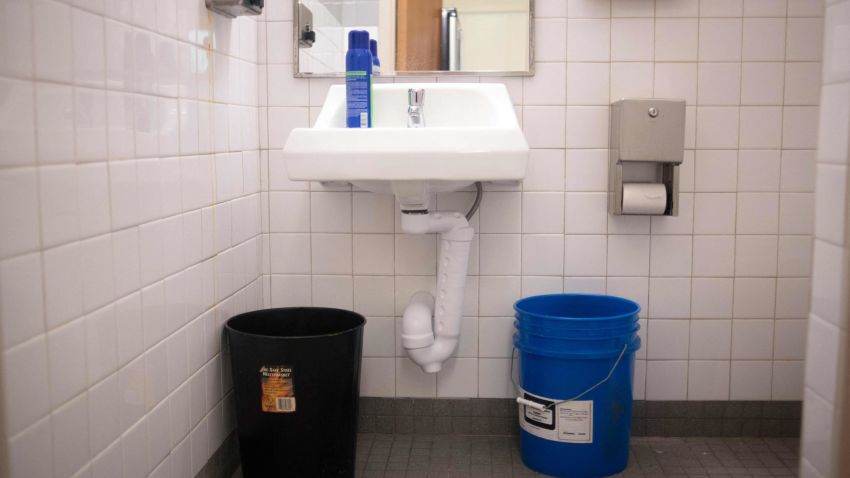Editor’s Note: W. Ralph Eubanks is the author of the new book “A Place Like Mississippi: A Journey Through a Real and Imagined Literary Landscape” (Timber Press), as well as “Ever Is a Long Time” and “The House at the End of the Road.” He is a visiting professor of English and Southern Studies at the University of Mississippi. The views expressed here are his. View more opinion on CNN.
When I am asked what makes Mississippi so special, I always point out the special ways the past and the present intersect on the physical and cultural landscape of this state. The names of Native American tribes like Biloxi and Pascagoula exist alongside the traces of the frontier and African-American culture that shaped the state.

Mississippi is a land of fascinating cultural juxtapositions. It birthed people who created high art and popular culture, with artists as varied as Elvis Presley and B.B. King, William Faulkner and Eudora Welty, and Leontyne Price and Tammy Wynette. Scholars like Bill Ferris and Margaret Walker Alexander have even helped preserve the cultural richness of this state and make it available to the world.
Yes, Mississippi has something to say and, given our extensive contributions in art and letters to this nation and the world, Mississippi matters.
What I did not expect on a recent trip to Jackson earlier this month was to encounter a new way the past and the present are colliding in Mississippi. Instead of the cultural charm and pull of this place that I love so much, I was confronted by the remnants of Jim Crow Mississippi living on in the present.
When I arrived at the gleaming Westin Hotel in downtown Jackson for the Mississippi Book Festival – hailed as this state’s “literary lawn party” – I was given two bottles of water, instructed not to drink the water that flowed from my faucet and warned not even to use the hotel’s water to brush my teeth. When I looked somewhat puzzled, the desk clerk let me know that the city was under a boil water alert and sought to reassure me. “Mr. Eubanks, you can come back and get as many bottles as you need,” he reminded me before I went up to my room. When I opened the door to my room, there were already extra bottles on my dresser.
Now, nearly two weeks later, what felt like an inconvenience is a full-blown crisis, albeit one that has been going on for years. More than 150,000 people in the state capital have no access to safe drinking water for the foreseeable future. The main water treatment facility began failing Monday, after torrential rains and years of water system problems had already left the city under a boil water notice in late July for what the state has called a “water-quality issue.”
Looking back, I was witnessing a tale of two cities at the Mississippi Book Festival: one in which writers visiting from around the country were treated like royalty – and Mississippi sure does know how to honor writers – and another one in which its citizens do not have daily access to a basic need like clean drinkable water.
Unlike me and my fellow writers, the poor and disadvantaged of Jackson do not have access to as much water as they need. On Tuesday, people at one distribution site were turned away when supplies of bottled water ran out. For those without cars or reliable transportation, they may not even be able to get to the stations that are providing drinkable water.
As someone old enough to remember segregated drinking fountains, I can say from memory that the water was rarely as cold as it was at the fountain for Whites. My mother always said, “We don’t drink colored water. Water is colorless, odorless and tasteless. Plus, the water in those fountains is not cold.” The water in the Jim Crow fountains was almost always tepid, even warm, the message being that substandard access to water was all that Black people deserved to have.
Given the years of neglect to the infrastructure of the state capital – a city that should be the proud shining jewel of the Magnolia State – it is no surprise the state government of Mississippi has ignored the city’s problems with its water system to the point of an absolute failure of the system. Now, unlike the warm water that flowed from Jim Crow era “colored” water fountains, the people of Jackson have no drinkable water at all. It is almost as if Jackson is being told to drink from the “colored” water fountain all over again, except this time drinking the water might make you deathly ill.
The particulars of this moment in Jackson’s water crisis involve complexities at the municipal and state level, but this isn’t the first time – far from it – that this city’s residents are suffering like this. One could understandably ask, as a number of my fellow writers did of me while they were in Jackson: How could a state ignore the needs of the residents of its capital city and allow things to deteriorate to this point? The answer as I see it is simple: racism.
Jackson is a Black majority city and Mississippi is governed by a White Republican supermajority that refuses to invest in Jackson because of who lives there and who governs it. The message derived from the ways Mississippi’s politicians have refused to support the crumbling infrastructure of Jackson again and again over the years is not much different from the late Sen. James K. Vardaman referring to Mississippi’s Black citizens as “lazy, lying, lustful animal[s], which no amount of training can transform into a tolerable citizen.”
Racism creates a vicious cycle: If you know that the White power structure believes you are incompetent, how can you trust them to help you fix a problem, given the ways they continue to oppress you? And suburban Whites, many of whom buy into the narrative of incompetence their political leaders have fed to them for decades, feel no responsibility to help.
During the book festival, when I tried to explain the origins of Jackson’s water crisis to a writer visiting from New York, I was asked, “So, what is the endgame to all of this?” I didn’t have an answer. When I told this story to a former student, Brittany Brown – who was in the process of retrieving her mother from Jackson because of the water crisis – her answer was also simple: “The endgame is Black death. This crisis overwhelmingly harms the Black and the poor. The state government should take care of its people, but it has ignored this crisis for so long simply because the majority of people who are affected are Black.”
What the endgame should be is safe and clean water for all residents of Jackson. State Sen. David Blount, along with four other senators, has called for a special legislative session, noting that it was time for the state to use a portion of its more than $2.5 billion in surplus funds to help fix Jackson’s water system.
There is precedent for this, since – as Blount has pointed out – the legislature sent money to Rankin County in suburban Jackson to build a new sewer plant and has spent hundreds of millions of dollars on regional utilities on the Gulf Coast and in DeSoto County in the Mississippi suburbs outside of Memphis. But these are all in White-majority municipalities. Given the racialized politics of Mississippi, I fear those surplus funds will never be used to help Jackson.
Unfortunately, what is central to the endgame of the Jackson water crisis is power. Power lies at the core of the politics of identity being played by Mississippi’s Republican politicians. What all the parties involved in getting clean water to Jackson’s citizens should be seeking is knowledge and truth, rooted in a shared meaning of Mississippi’s past, even the ugly parts of it that make us all uncomfortable when we look at them through a deep, dark truthful mirror. Until Mississippi begins to see the connection between the Jim Crow past in its present – and see it clearly – the Jackson water crisis will never be resolved.








